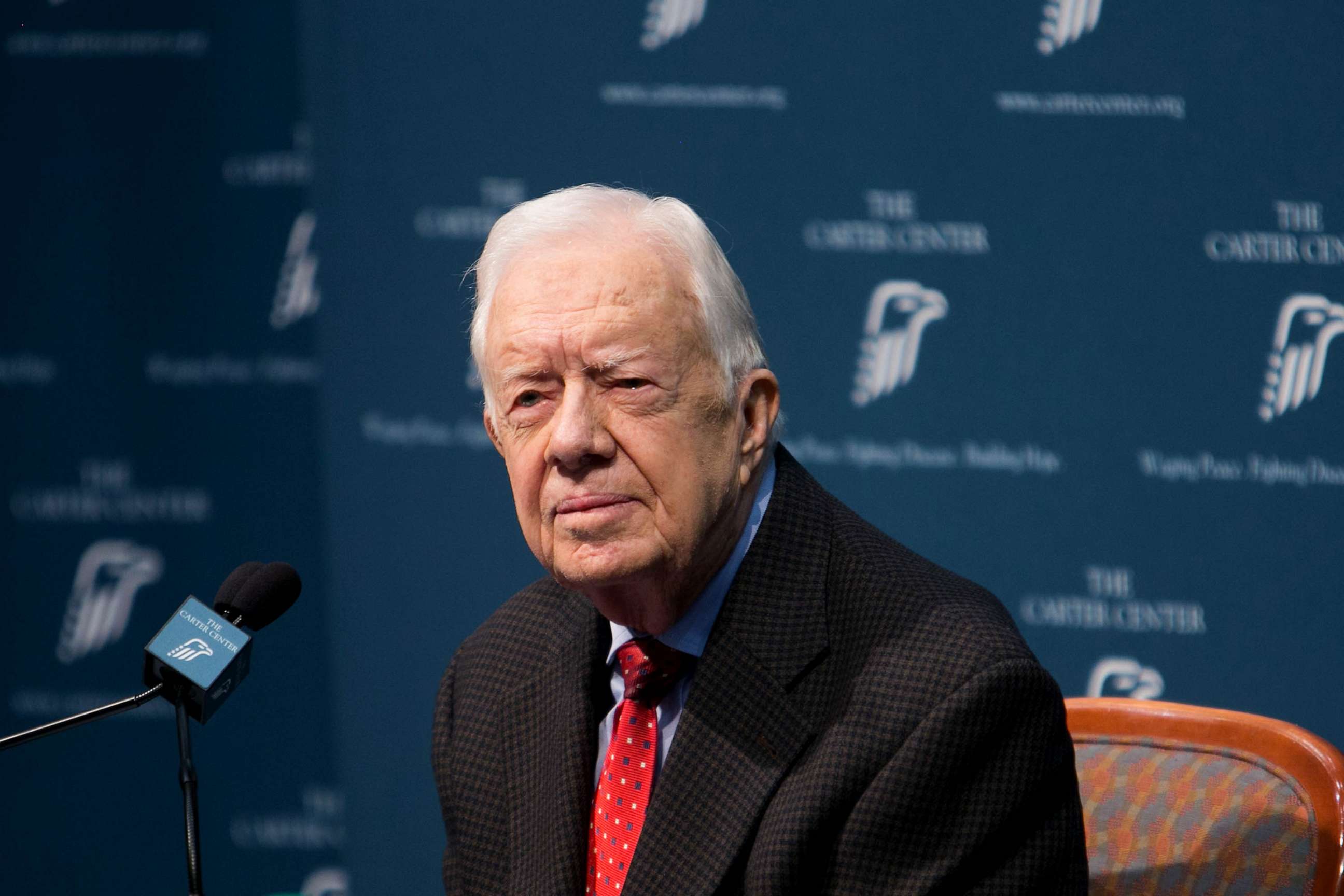How Jimmy Carter lost reelection and became a Nobel Prize-winning humanitarian
Former President Jimmy Carter earned a Nobel Peace Prize in 2002 which, at the time, seemed to cap his decades of dedication to international humanitarian work after leaving the White House.
Instead, he continued to work for years after -- a legacy that is drawing renewed attention in the wake of his death at age 100.
After serving one term as president and losing his reelection bid to Ronald Reagan, Carter and his wife, Rosalynn Carter, founded an eponymous organization in Georgia dedicated to conflict resolution and advancing human rights, public health and democracy around the world.
The Carter Center, the main vehicle for the Carters' work, was founded in 1982, the year after he left the White House.
Jimmy Carter's advocacy for peaceful resolutions to global conflicts helped burnish his reputation as a global statesman, a commitment he underscored when receiving the Nobel on Dec. 10, 2002.
"War may sometimes be a necessary evil. But no matter how necessary, it is always evil, never a good. We will not learn how to live together in peace by killing each other's children," he said then.
The center's website declares that it is guided by the principles of Jimmy and Rosalynn Carter, including, "a fundamental commitment to human rights and the alleviation of human suffering" while "seek[ing] to prevent and resolve conflicts, enhance freedom and democracy, and improve health."
Since its founding, the center has established programs across the globe, focusing both on democracy promotion and public engagement with government as well as global health.
Among other accomplishments, the center highlights work monitoring 113 elections across 39 countries. Specifically, the center recently observed elections in Myanmar, Bolivia, the Ivory Coast, Guyana, Tunisia and Nepal and currently runs projects to expand women's access to information in Liberia, Bangladesh and Guatemala.

Elsewhere, the center is "supporting a human rights-based approach to the Israeli-Palestinian conflict," working to implement a 2015 peace agreement in Mali and ameliorate the humanitarian crisis in Syria, the type of work that led to Jimmy Carter's Nobel Peace Prize in 2002.
"What I derive from this is a commitment to peace, to the honoring of international law," Jimmy Carter said on Oct. 11, 2002 after he was announced as the prize's winner that year.
Building off of Jimmy Carter's success in the White House in establishing a peace treaty between Israel and Egypt, the center ultimately became a diplomatic broker outside of the government's official channels, with the former president himself meeting world leaders in places like North Korea, where in 1994 he helped establish a pact between Washington and Pyongyang on nuclear issues.
Besides democracy promotion and conflict resolution, the center has also long been involved in several global health programs, including fighting Guinea worm, river blindness, trachoma, schistosomiasis, lymphatic filariasis and malaria.
"We believe access to health care is a human right, especially among poor people afflicted with disease who are forgotten, ignored, and often without hope," Jimmy Carter said in a quote featured on the center's website. "Just to know that someone cares about them not only can ease their physical pain but also remove an element of alienation and anger that can lead to hatred and violence."
Those efforts helped lead to the unanimous decision by the Norwegian Nobel Committee in 2002 to award the peace prize to the former president.
At the time, he lamented the growing global wealth disparity, linking it to many of the world's greatest challenges.

"Among all the possible choices, I decided that the most serious and universal problem is the growing chasm between the richest and poorest people on earth. Citizens of the ten wealthiest countries are now seventy-five times richer than those who live in the ten poorest ones, and the separation is increasing every year, not only between nations but also within them," he said in 2002.
"The results of this disparity are root causes of most of the world's unresolved problems, including starvation, illiteracy, environmental degradation, violent conflict, and unnecessary illnesses that range from Guinea worm to HIV/AIDS."
Besides working through his center, Jimmy and Rosalynn Carter worked for decades with Habitat for Humanity, often volunteering themselves to help build homes for those in need.
"Habitat provides a simple but powerful avenue for people of different backgrounds to come together to achieve those most meaningful things in life," Jimmy Carter once said. "A decent home, yes, but also a genuine bond with our fellow human beings. A bond that comes with the building up of walls and the breaking down of barriers."




